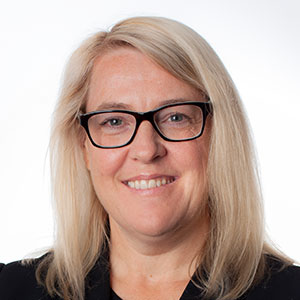 No one-size-fits-all when it comes to post-trauma conditions
No one-size-fits-all when it comes to post-trauma conditions
SAMHC Weekly Blogger:
Dr Taryn Cowain
Clinical Unit Head and Senior Psychiatrist, Veterans Mental Health, The Jamie Larcombe Centre, Glenside
I have worked in psychiatry for 25 years now. While my registrar years with their long hours, frequent on calls and high-stakes exams seemed to be endless – I am surprised to realise that it is now 20 years since I obtained fellowship. Suddenly I am ‘experienced’, a ‘mentor’, or maybe just older!
Being a psychiatrist is a privileged role. Hearing the stories of those I meet with, their challenges, griefs, thoughts about their world, struggle with illness – and the way they master problems, find ways forward, recover their sense of self and, most importantly, learn how to be kind to themselves is a moving and fascinating experience.
When I started in veteran mental health 17 years ago I was experienced with severe spectrum psychosis and depression but had not fully understood the implications of post trauma conditions; illnesses which arise through an individual being subject to overwhelming distress and fear – often repeatedly.
Over this time I have seen CEOs, health professionals, truck drivers, farmers, managers, grandfathers, fathers, mothers, sisters, sons and daughters all suffering after their exposure to trauma and also to the aftermath of this trauma.
I have heard the horror of the stories, the weight of moral injury and the burden of trying to manage the overwhelming emotions or powerful emotional numbing that subsequently occurs and the many, many ways this works to fracture lives and relationships.
For those who feel they are resilient and could withstand trauma, I encourage you to read Major General John Cantwell’s book “Exit Wounds” which is a compelling story of the way stress can accumulate in a modern battlefield and how the most robust of humans can be affected by PTSD. An ancient condition which lurks on every battleground, during every argument and assault, within each natural disaster, each traumatic childhood and everywhere human individuals are pushed to and beyond breaking point.
I have heard many theories and potential answers to post trauma conditions. I’ve tried many of these in clinical practice. What I have long thought, and what is increasingly backed up by research, is that just as the individual brings their own history, strengths and personality to their experience of trauma – they also bring these to their recovery. There is no “one size fits all”.
In the Veteran’s Mental Health Service, previously at Ward 17 and now in The Jamie Larcombe Centre, the focus is on providing a range of treatment for those most severely affected by mental illness. We realise there is limited or no benefit in actively doing trauma focused work when a person is sleep deprived or when their partner is distressed and threatening to leave. Addressing issues in a prioritised and collaborative way is the hallmark of treatment. While a range of evidence-based and patient-chosen therapies are offered – all of them start with kindness and respect.
In my experience treating someone in distress with kindness, often a kindness they are not able to show themselves, is the most important step towards all the other essential ingredients such as engagement, self-determination, responsibility, self-care, self-worth and recovery. It might sound easy – but being kind to people who are furious, agitated, distressed, empty and hopeless is a high-level therapeutic skill which is undervalued in systems.
I am fortunate to enjoy my work and to practise in a setting where I can be proud of the service offered.
With age and experience I am more aware than ever of how each of us is only a whisper away from mental illness and how mental health needs the same focus as physical health to ensure we can prevail in – and appreciate – our lives.
By Dr Taryn Cowain
Clinical Unit Head and Senior Psychiatrist, Veterans Mental Health, The Jamie Larcombe Centre, Glenside
SAMHC Special Weekly Bloggers


